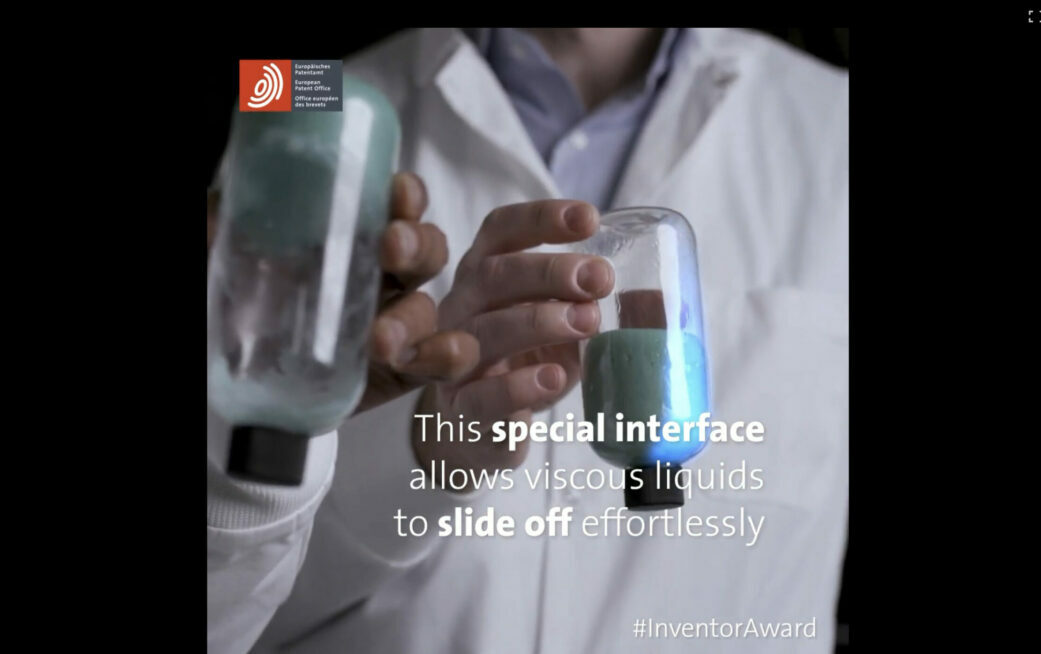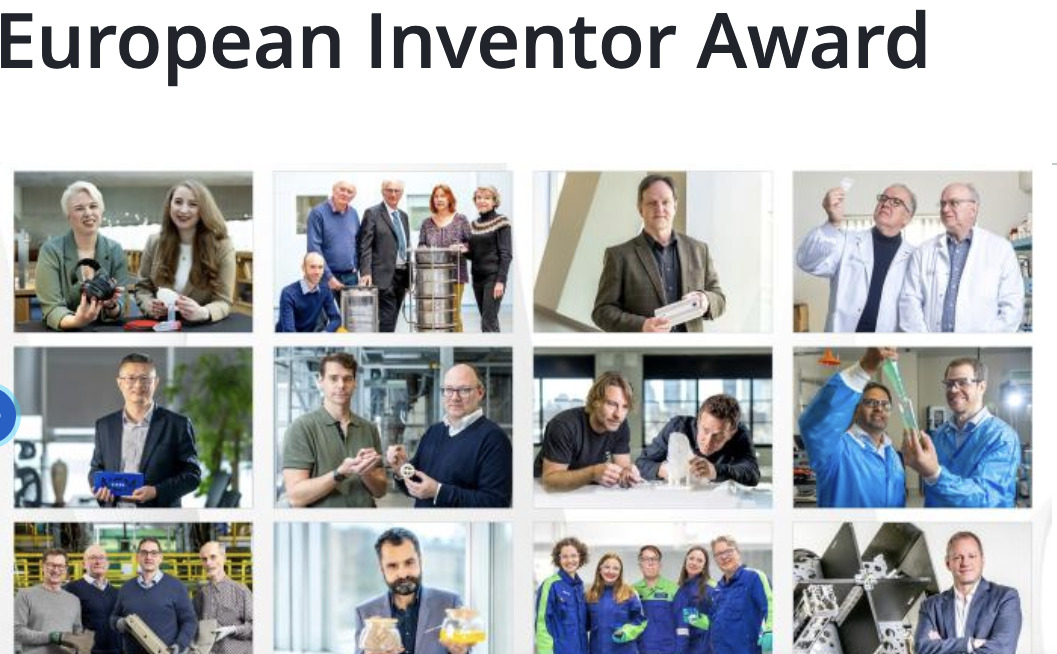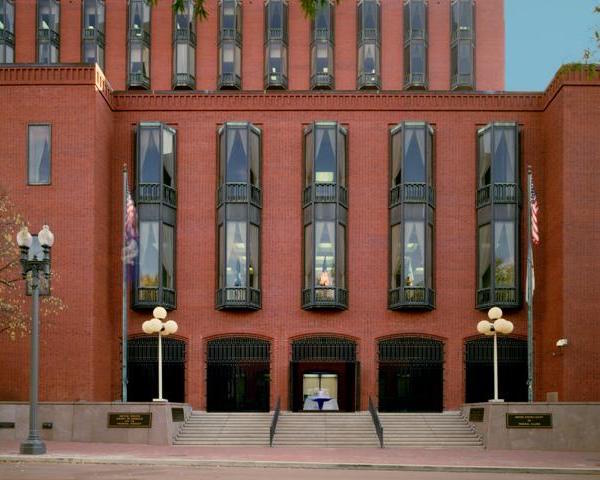European Inventor Award Finalists Focus on Sustainability
“The innovation shown by this year’s finalists, in the face of the modern world’s many shared challenges… is a source of inspiration.” – EPO President António Campinos
On Tuesday, the European Patent Office (EPO) announced the 12 inventors and inventor teams that have been selected as finalists for the 2023 European Inventor Award.
The EPO placed three finalists each into four groups: Industry, Research, SMEs, and Non-EPO Countries. Members of the public can vote for the winner on the EPO’s website.
The finalists hail from 12 countries, Australia, Austria, Belgium, China, Finland, France, Germany, Iceland, India, Ireland, Italy, and the United States. An independent jury of former European Inventor Award finalists used their expertise to select this year’s finalists.
The United States is represented by an MIT team led by Kripa Varanasi from India and David Smith from the United States. The MIT team invented frictionless coatings that prevent viscous substances from sticking to their surfaces, maximizing product use and eliminating waste.? This team was nominated in the Non-EPO category.
The European Inventor Award was inaugurated in 2006 to pay tribute to inventors around the world. The award ceremony will be held in Valencia, Spain on July 4 and will be available to livestream.
“The innovation shown by this year’s finalists, in the face of the modern world’s many shared challenges, such as sustainability, the energy transition and social inequality, is a source of inspiration. These awards celebrate their work and the progress it represents,” said EPO President António Campinos.
Kripa Varanasi and David Smith – Non-Stick Packaging to Reduce Waste

The company was founded in 2012 by the Indian-U.S. duo of mechanical engineers Kripa Varanasi and David Smith. The pair entered the MIT-100K business plan competition and won the Audience Choice award.
As a result of the victory, Varanasi said, “there was a big pull from the market, a technology that was great and couldn’t be easily duplicated or replaced, we had intellectual property protection for all these things, and an investment community which was excited.”
According to some estimates, 15% of viscous products like ketchup are thrown out as they are stuck in their single-use plastic packaging. The pair realized a solution to the problem that can reduce the estimated 1 million tons of condiments that are thrown away every year.
Smith and Varanasi met at MIT when Smith was one of Varanasi’s first graduate students at the university.
“I was always fascinated by new inventions and new technology. I thought that was really cool and wanted to be a part of that, wanted to build things, wanted to invent things,” said Smith.
Non-EPO Countries
LiquiGlide’s competition in the Non-EPO Countries category includes an EV battery safety device and a brain implant for two-way communication with external devices?.
Kai Wu and his team invented a number of features that improve the safety and performance of Li-on batteries that are used in electric vehicles.
In the third slot, Thomas Oxley and Nicholas Opie created Stentrode an implantable brain-computer interface (BCI) designed to help those with paralysis communicate through thought.
Industry
The Industry category shows the EPO’s emphasis on green technology.
??Pia Bergström, Annika Malm, Jukka Myllyoja, Jukka-Pekka Pasanen and Blanka Toukoniitty are a team of inventors from Finland that developed a new technology ?that transforms a wide variety of wastes and residues into premium-quality renewable products, such as fuel.
Next, ? Michiel Dusselier and Bert Sels, professors from Belgium, developed a cheaper, more environmentally-friendly method to produce bioplastics.
Finally, an Austrian team won their finalist spot for their method of manufacturing lighter galvanized steel car parts that will reduce car emissions.
Research
The research category includes German professor Harald Haas for his invention of LiFI, which allows data to be transmitted through light sources like LEDs.
Scientists Thorsteinn Loftsson and Einar Stefánsson developed an eye drop that delivers drugs to the back of the eye and can replace costly and invasive surgery.
Lastly, a French team booked their finalist spot thanks to their method of storing hydrogen more safely and sustainably.
Small and medium-sized enterprises
In the SMEs category, Antoine Hubert and his team? were nominated for their new method of farming insects to produce food for plants, animals, and in the future, even humans.
??Luca Rossettini was placed in the finals for the work at his company D-Orbit, which removes old or broken satellites from space.
Irish physicists Rhona Togher and Eimear O’Carroll made it to the finals with their lightweight material to reduce noise.
Additional Awards
Two other awards will also be announced before the July 4 ceremony. The Lifetime Achievement category will be announced two weeks before the ceremony and the EPO will announce the winners of the Young Inventors Prize on May 23. The winner of this award will be a 30 or under inventor that solved a problem within the framework of the United Nations Sustainable Development Goals.






